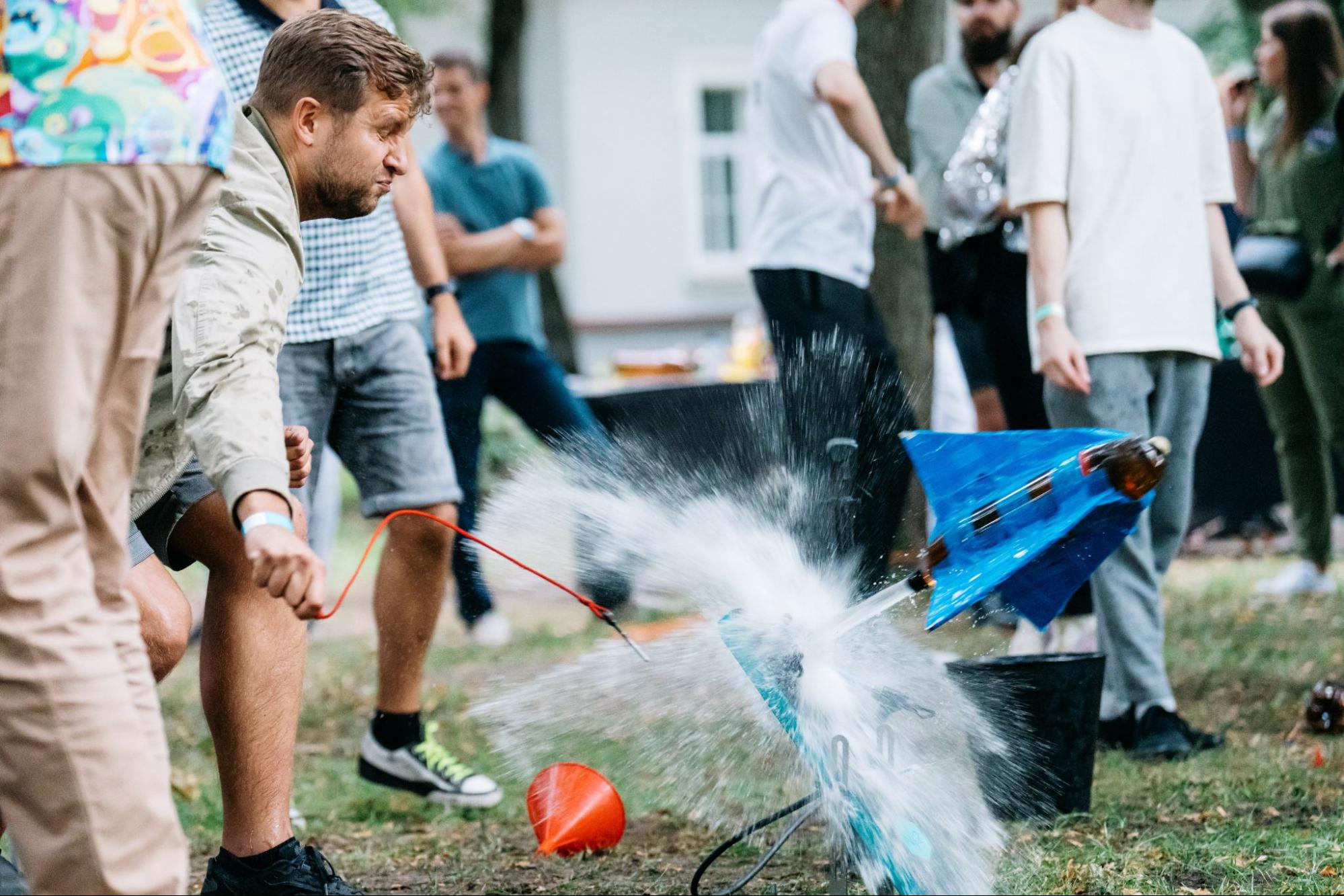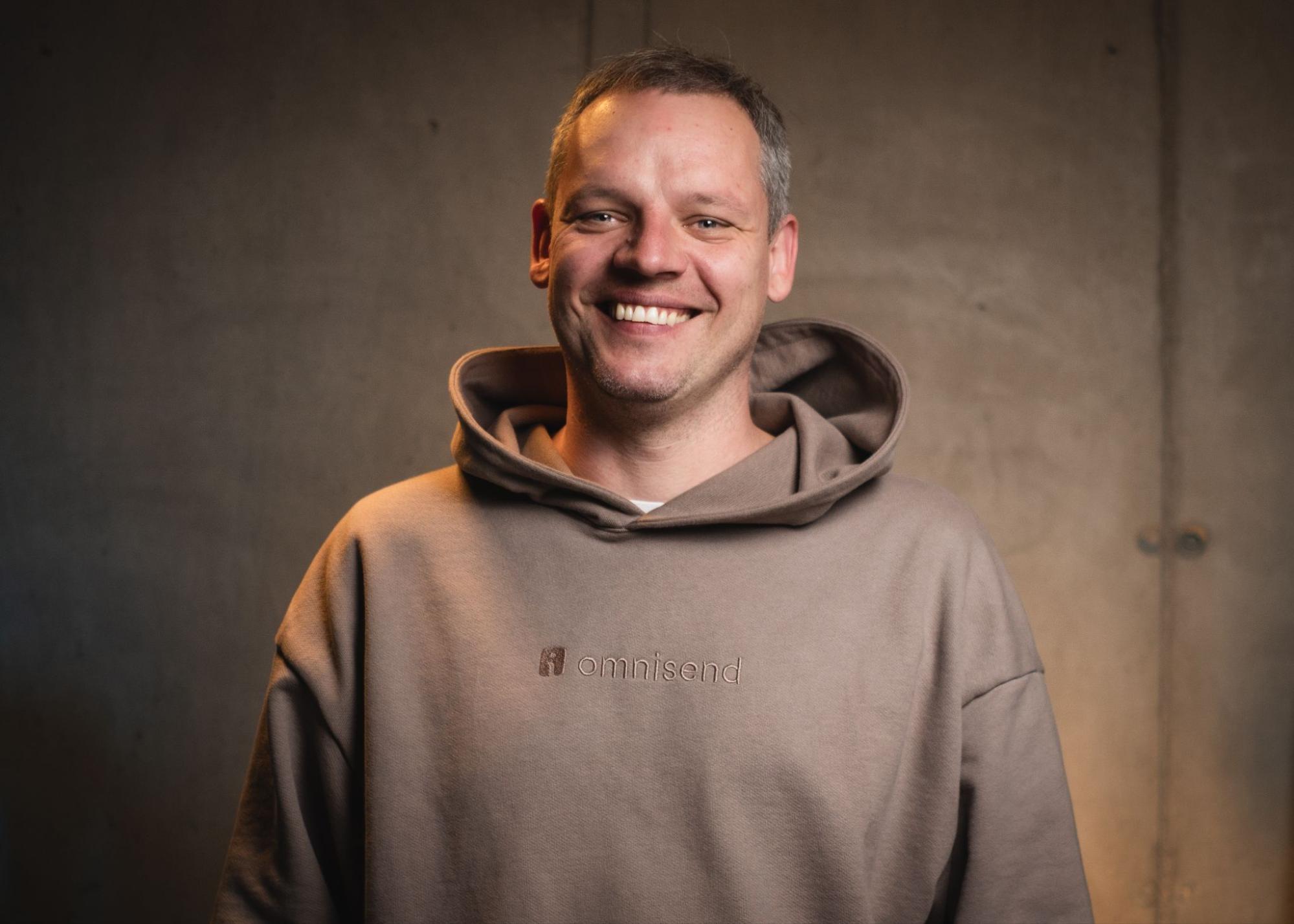Drive sales on autopilot with ecommerce-focused features
See FeaturesFrom junior to senior: Growth is a shared responsibility
Read summarized version with
When people talk about software teams, it’s easy to reduce everyone to a label. Junior. Mid. Senior. Expert.
At Omnisend, we try to look at these levels less as status markers and more as shared expectations. It’s a way to make sure no one is left flailing, that the work actually matches people’s experience, and that everyone is set up to grow with purpose, not by accident.
While employee growth is largely about individual ambition, as a company, we see it as a way to build a team that can rely on one another. We also want to make sure we don’t stall as a business just because the right challenges weren’t given to the right people at the right time.
So what do these seniority levels actually mean in practice for a software engineer at Omnisend?

Why levels matter
Talking about career levels can feel awkward sometimes. No one wants to sound like they’re ranking people.
But in reality this structure has a purpose.
It’s what makes sure juniors aren’t expected to take on problems that would burn them out. Or what helps mid-level devs see a clear path toward more ownership. And it’s what ensures seniors are using their knowledge to shape how we work.
“A team works best when each person is taking on tasks that match their level of competence,” says Šarūnas Žukas, our Engineering Manager. “That’s how you make sure things actually get done, and how people keep growing.”
It’s easy to imagine growth in a tech company as a solo climb — but it really isn’t. The whole point is that people don’t grow alone. They learn from colleagues, take on harder challenges with guidance, and eventually help others do the same.
That’s the part we care about most at Omnisend.
You’re a junior, so what’s your day-to-day like?
At Omnisend, we see a junior developer as someone who’s still building their foundations.
At this stage, you’re not expected to ship the flashiest new feature or solve every bug on your own. Your day-to-day will involve handling simpler, lower-complexity tasks, and learning how to take on more over time.
“A junior’s main job is to learn,” Šarūnas says. “And the more energy they dedicate to this, the faster they’ll grow.”
Your manager will expect you to ask questions, make mistakes, dig into why things work the way they do, and apply those lessons next time. In return, they’ll invest their time and energy in you without treating it as an extra task — because it’s part of their job. They know that the junior they help grow today is the teammate who’ll help move the whole team forward tomorrow.
The shift to mid-level: independence and support
When people move to mid-level, the expectations change in ways that are both technical and human.
Technically, as a mid-level developer you’d take on more complex problems and handle them with greater independence. Instead of just following instructions, you’d now be making decisions about how to approach a problem, breaking it down, and seeing it through.
Equally important are the soft skills: “At this level, it becomes very important how you interact with other colleagues,” says Šarūnas. “You have to be able to communicate clearly, work with other teams, assign or review tasks for juniors, and generally keep things moving when blockers come up.”
So it’s not all about coding at mid-level. A manager wants to see a reliable colleague — someone the team knows can take ownership without needing constant hand-holding, and someone who helps others grow along the way.
Becoming a senior
Senior is a word that gets thrown around a lot in the tech world, sometimes in ways that don’t mean much. Here, we try to keep it simple and grounded.
As a senior developer at Omnisend, you become someone who can solve complex, often ambiguous problems on their own, and who takes initiative to tackle broader challenges. At this point there’s no waiting around for tasks being assigned — you’re the one actually looking for what needs to be fixed, improved, or designed better.
“Some seniors become true experts in a narrow area, and that’s great,” Šarūnas says. “But no matter the specialty, the common thread is responsibility. Both for their own work, and for the success of the team.”
Seniors help set the tone and are the ones others turn to for advice, sanity checks, or new ideas. And crucially, they don’t gatekeep knowledge. They share it and mentor their more junior colleagues, helping others see the path forward.
Growth is a shared responsibility
One thing we try to be clear about at Omnisend is that no one grows in a vacuum.
Yes, developers need to take ownership of their learning. They need to ask questions, seek out challenges, and take feedback seriously. But the team and manager play just as big a role. It’s on us to make sure no one is left to “sink or swim.”
“A manager’s guidance is especially important for juniors,” Šarūnas says. “You must give clear, timely, constructive feedback. Without it, people can get stuck, or worse, burn out.”
That’s why growth conversations should include questions like:
- What are you working on right now?
- Is it challenging you enough? Or too much?
- What’s the next step for you?
- How can we support you in getting there?
“It’s worth acknowledging that this path isn’t fast. Juniors might spend around two years at that level, sometimes more. Mid-levels often hit their stride between years three and five. And then, after five or more years of hard-earned experience, you become a senior,” Šarūnas says.

These aren’t strict timelines though, they’re more like ballparks. Because time spent in a position is not everything. Your ability to learn and grow is what really moves that needle.
“You’ll face all kinds of challenges,” Šarūnas says. “You’ll solve countless problems. You might even go through personal or professional drama. But being in the thick of it — especially when you’re not in it alone — that’s what helps you grow.”
That’s the whole point of having these levels: so you’re not navigating it all by yourself, so the challenges match where you are now, and so there’s a clear path ahead for where you’re going next.
Check out our open positions here and see how you can be part of the team!
TABLE OF CONTENTS
TABLE OF CONTENTS


No fluff, no spam, no corporate filler. Just a friendly letter, twice a month.

 OFFER
OFFER






